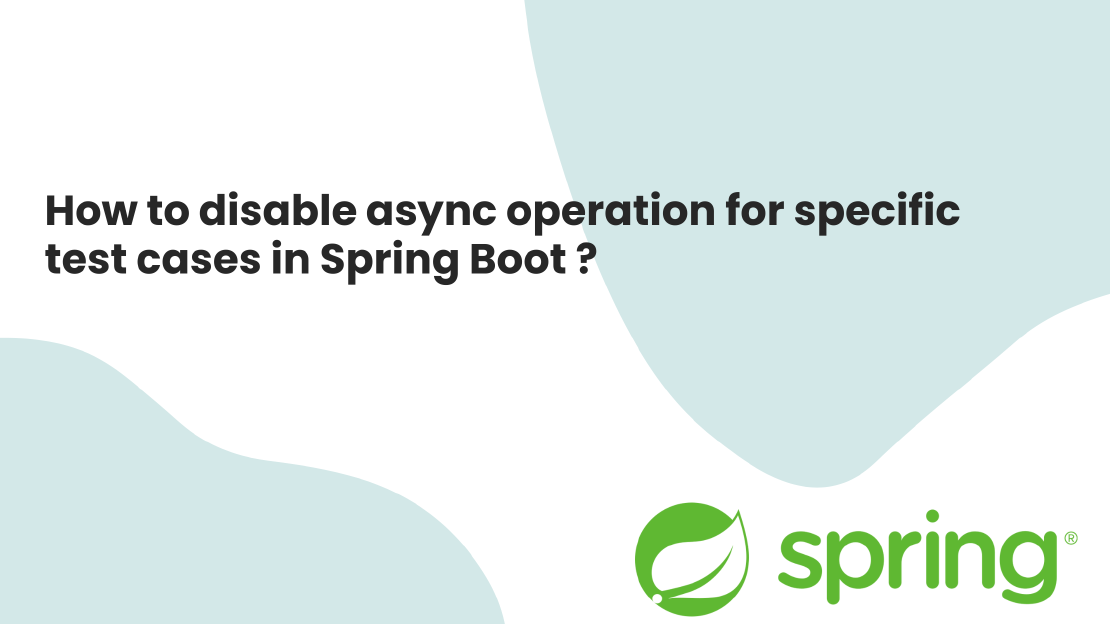@RequestHeader annotation in Spring Boot
@RequestHeader annotation is used to bind a request header to a method argument in a controller. In other words, it allows us to read http headers in …
Some of the older versions of Spring boot supports Junit 4 (with Junit 5 dependencies as well). If you want to use Junit 5 in in your spring boot application with version 2.1.x, then you can apply the following steps:
In this example I am assuming that you are using spring boot version 2.1.6.RELEASE:
<?xml version="1.0" encoding="UTF-8"?>
<project
xmlns="http://maven.apache.org/POM/4.0.0"
xmlns:xsi="http://www.w3.org/2001/XMLSchema-instance"
xsi:schemaLocation="http://maven.apache.org/POM/4.0.0 https://maven.apache.org/xsd/maven-4.0.0.xsd">
<parent>
<groupId>org.springframework.boot</groupId>
<artifactId>spring-boot-starter-parent</artifactId>
<version>2.1.6.RELEASE</version>
<relativePath/>
<!-- lookup parent from repository -->
</parent>
<description>Demo project for Spring Boot</description>
<properties>
<java.version>1.8</java.version>
</properties>
<dependencies>
<dependency>
<groupId>org.springframework.boot</groupId>
<artifactId>spring-boot-starter-test</artifactId>
<scope>test</scope>
<exclusions>
<exclusion>
<groupId>junit</groupId>
<artifactId>junit</artifactId>
</exclusion>
</exclusions>
</dependency>
</dependencies>
</project>
<?xml version="1.0" encoding="UTF-8"?>
<project
xmlns="http://maven.apache.org/POM/4.0.0"
xmlns:xsi="http://www.w3.org/2001/XMLSchema-instance"
xsi:schemaLocation="http://maven.apache.org/POM/4.0.0 https://maven.apache.org/xsd/maven-4.0.0.xsd">
<parent>
<groupId>org.springframework.boot</groupId>
<artifactId>spring-boot-starter-parent</artifactId>
<version>2.1.6.RELEASE</version>
<relativePath/>
<!-- lookup parent from repository -->
</parent>
<description>Demo project for Spring Boot</description>
<properties>
<java.version>1.8</java.version>
<junit-jupiter.version>5.3.2</junit-jupiter.version>
</properties>
<dependencies>
<dependency>
<groupId>org.springframework.boot</groupId>
<artifactId>spring-boot-starter-test</artifactId>
<scope>test</scope>
<exclusions>
<exclusion>
<groupId>junit</groupId>
<artifactId>junit</artifactId>
</exclusion>
</exclusions>
</dependency>
</dependencies>
</project>
@ParametrizedTest, in your test cases, you should also include junit-jupiter-params):<?xml version="1.0" encoding="UTF-8"?>
<project
xmlns="http://maven.apache.org/POM/4.0.0"
xmlns:xsi="http://www.w3.org/2001/XMLSchema-instance"
xsi:schemaLocation="http://maven.apache.org/POM/4.0.0 https://maven.apache.org/xsd/maven-4.0.0.xsd">
<parent>
<groupId>org.springframework.boot</groupId>
<artifactId>spring-boot-starter-parent</artifactId>
<version>2.1.6.RELEASE</version>
<relativePath/>
<!-- lookup parent from repository -->
</parent>
<description>Demo project for Spring Boot</description>
<properties>
<java.version>1.8</java.version>
<junit-jupiter.version>5.3.2</junit-jupiter.version>
</properties>
<dependencies>
<dependency>
<groupId>org.springframework.boot</groupId>
<artifactId>spring-boot-starter-test</artifactId>
<scope>test</scope>
<exclusions>
<exclusion>
<groupId>junit</groupId>
<artifactId>junit</artifactId>
</exclusion>
</exclusions>
</dependency>
<dependency>
<groupId>org.junit.jupiter</groupId>
<artifactId>junit-jupiter-engine</artifactId>
<version>${junit-jupiter.version}</version>
<scope>test</scope>
</dependency>
<dependency>
<groupId>org.junit.jupiter</groupId>
<artifactId>junit-jupiter-params</artifactId>
<version>${junit-jupiter.version}</version>
<scope>test</scope>
</dependency>
</dependencies>
</project>
That’s it appliying these simple steps, right now junit 5 will be enabled in your project
@RequestHeader annotation is used to bind a request header to a method argument in a controller. In other words, it allows us to read http headers in …

I was facing a challenge with running test cases that include async methods in my Spring Boot application. The test cases failed because the async …